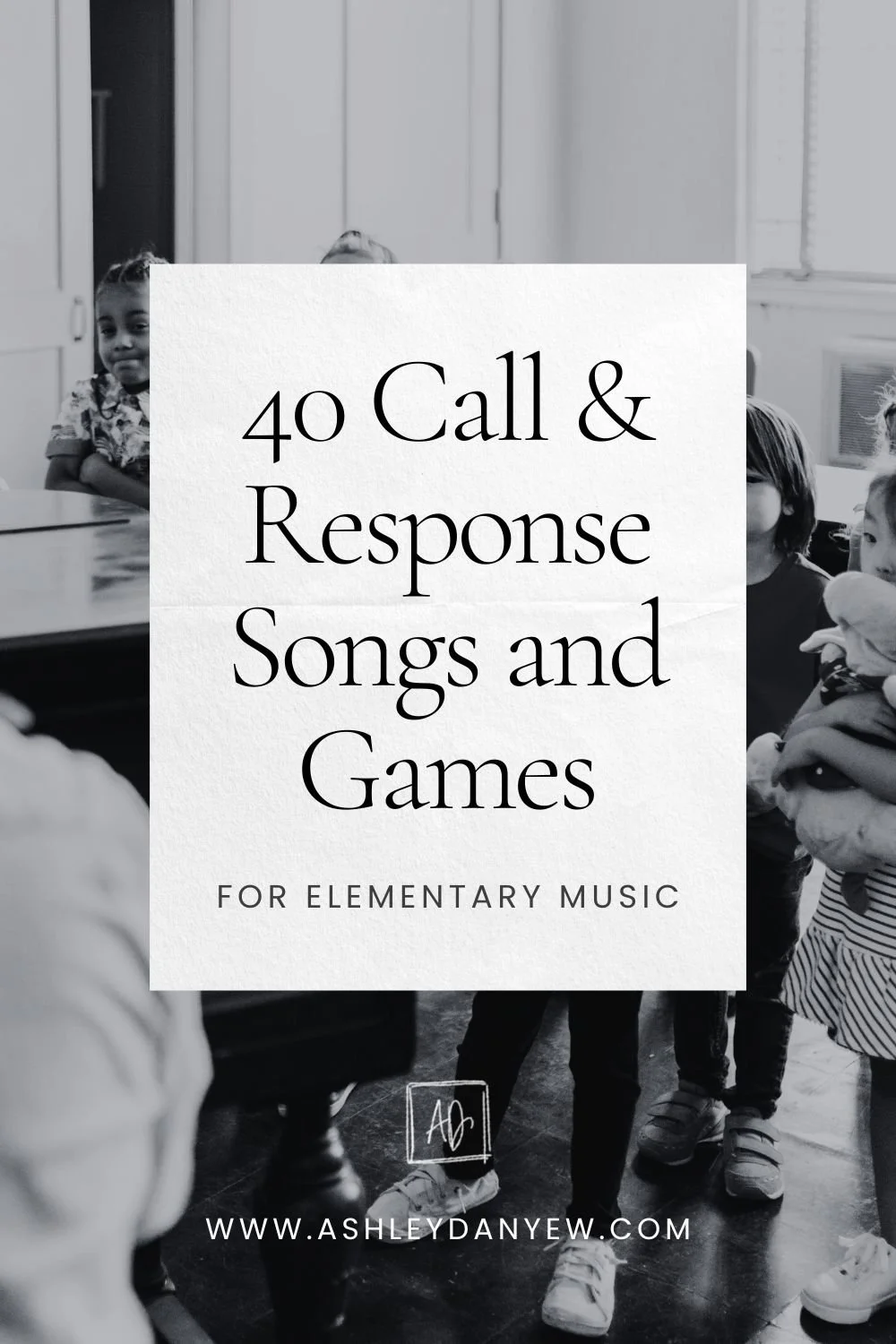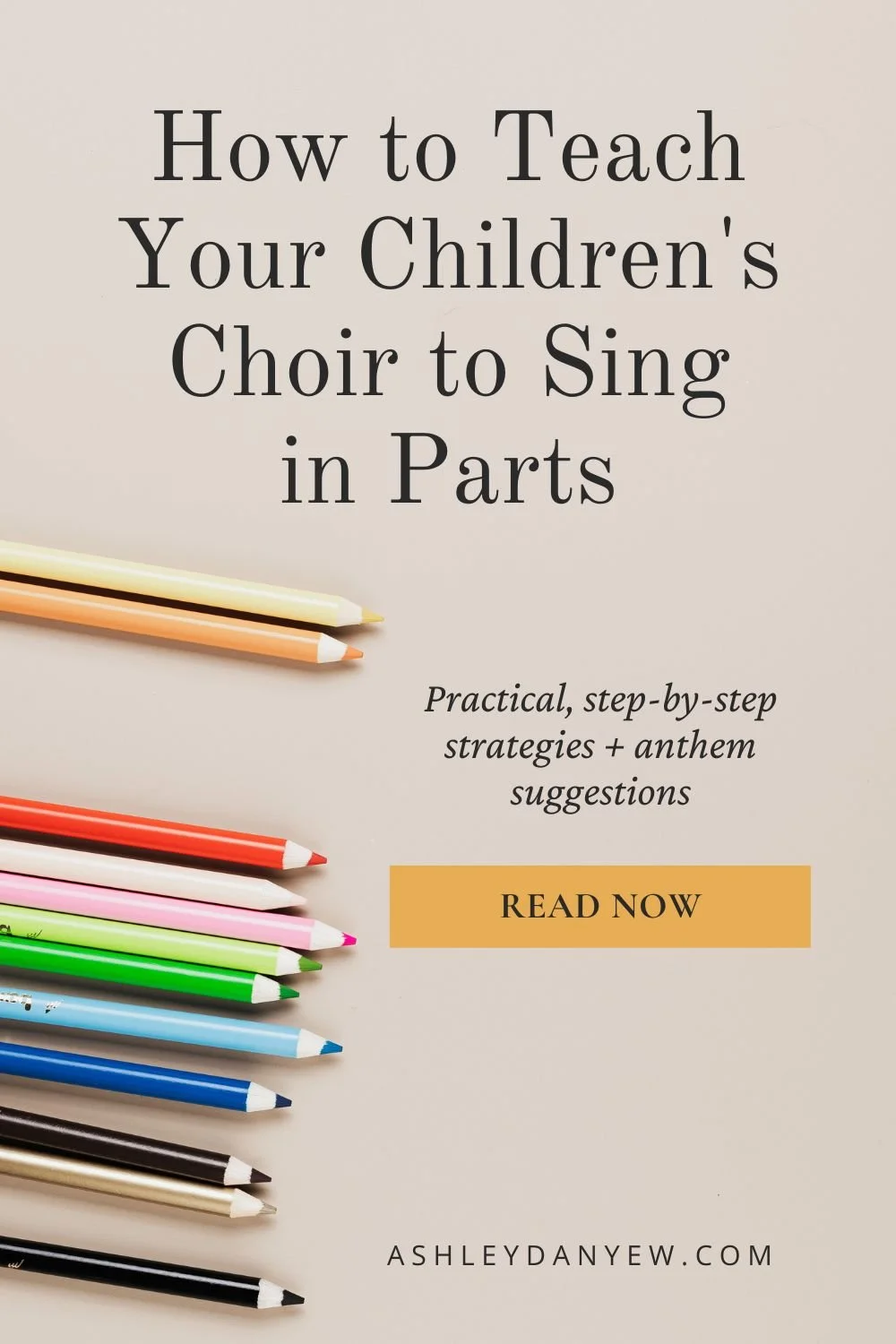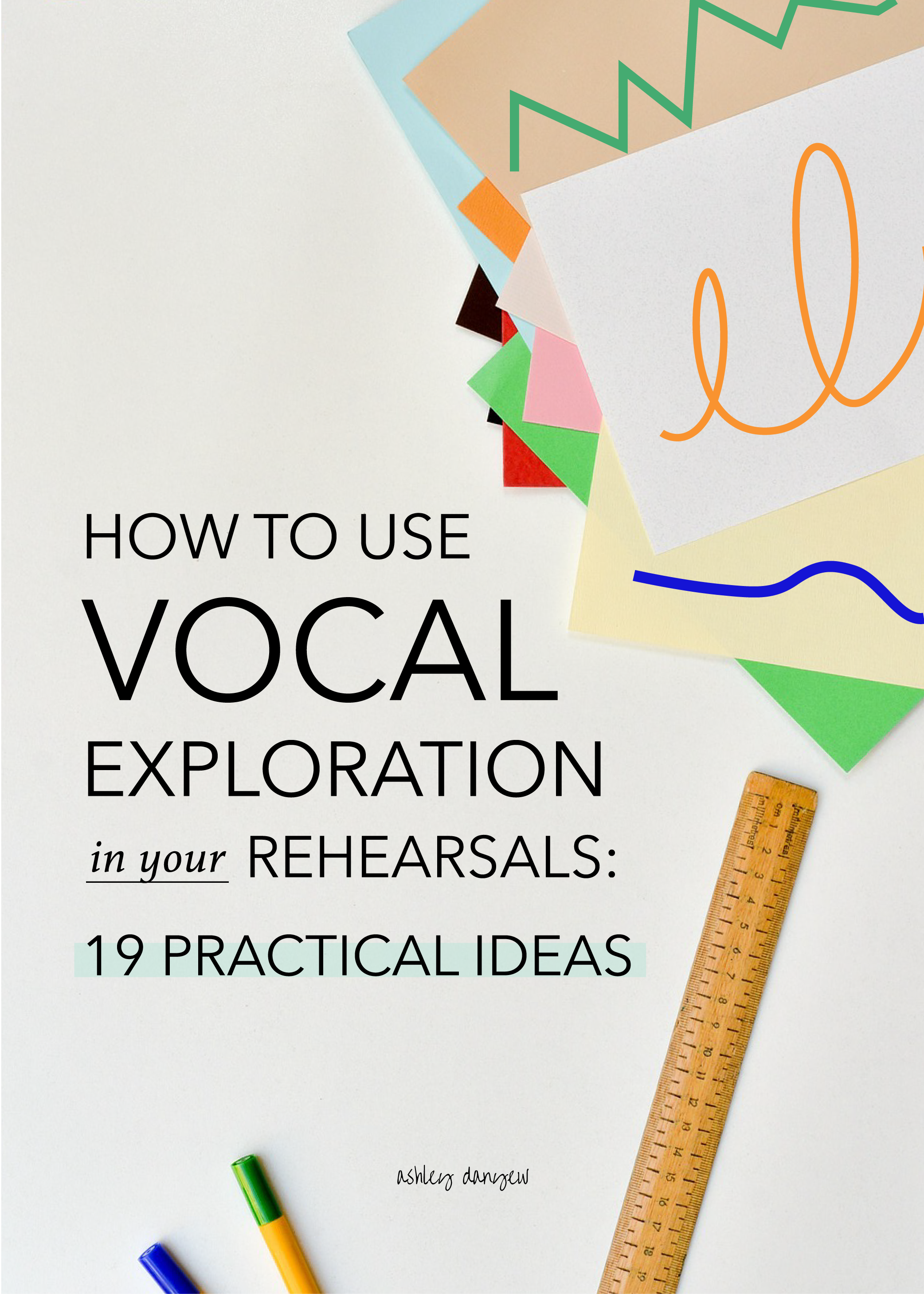As teachers, we’re never really done learning (and that’s a good thing!).
John Dewey once said, “If we teach today’s students as we taught yesterday’s, we rob them of tomorrow.”
So true, right? The world is constantly changing and evolving and we need to be constantly changing, adapting, learning, and evolving along with it to be the best teachers we can be.
What do you want to learn this year? What kind of teacher do you want to become?
I shared my answers to these questions on Facebook Live a few weeks ago. Watch the replay here, in case you missed it!
Looking for some inspiration and ideas? Here are eight things you can do to continue developing your teaching skills this year.
*Disclosure: I get commissions for purchases made through links in this post.
01 | Evaluate
There might be several facets to this one: evaluating your communication skills, your modeling skills, your organizational practices, your leadership abilities, your musicianship.
All of these things are important to your work as a teacher and it’s important to take some time to reflect on those things a few times a year and look for places where there is potential room to grow and improve.
The best way to get an objective view of your teaching? Record a video of one of your rehearsals. Set up a small video camera in the back of the room, focused on you. Run the camera from beginning to end so you can observe and evaluate your interactions with children as they come in and when they leave.
Then, carve out some time to watch the video and write down some reflections for yourself. Here’s a helpful checklist from a Growing in Grace session at the Alleluia Conference held at Baylor University each year:
Did you speak clearly?
Did the choir sing without accompaniment, at times?
Did you call children by their names?
Did you encourage them by smiling and making eye contact?
Did you use a variety of different kinds and styles of accompaniments?
Did you highlight appropriate behavior more than negative behavior?
Did you speak with engagement, varying your inflection and dynamic level?
Did your body language/conducting gestures communicate the mood and style of the music?
Did you know the music well before presenting it to the children?
Did you transition smoothly from song to song?
Did you hear individual children sing alone, at times?
Did you give mostly positive feedback?
Plus, one question I always ask myself: How much time did you spend giving spoken directions or introductions?
Spend some time honestly evaluating yourself and your teaching skills and identify things you’d like to improve in the coming year (be specific!).
02 | Read
Another great way to continue developing your teaching skills is by reading - books, blogs, articles, etc. Look for content on working with choirs, conducting, music theory, inspiring young singers, different learning styles, aural skills and musicianship, and leadership.
Studying the various ways people learn (and learn music, specifically) is so valuable as a teacher. As Ignacio Estrada said, “If a child can’t learn the way we teach, maybe we should teach the way they learn.”
If you’re not already a member, you might consider joining an organization like Choristers Guild or a music organization specific to your denomination for more helpful reading material, teaching tips, etc.
03 | Practice Your Instrument
There’s something to be said about staying connected to the art of music-making yourself. As teachers, practicing is often low on our list of to-dos, but this is an important (and vital) part of keeping up our own skillset and giving our best to those we teach on a weekly basis.
Whether it’s the piano or another instrument, singing, or conducting, schedule some time in your week to connect with your instrument and practice for yourself. Put it on your calendar to help you stay accountable.
Related post: Four Reasons Why Playing Your Instrument for Fun is Vital to Your Music Career
04 | Connect with Other Musicians and Teachers
This one is so important.
Reaching out to other musicians and teachers gives you an opportunity to not only encourage one another and share ideas and resources but also talk through challenges or stumbling blocks that might be holding you back and bounce ideas off each other for new creative projects or strategies.
Don’t have musician and teacher friends you can connect with in your town? Look for ways to connect with like-minded people online. Join a Facebook group or reach out to people on Instagram. Connect with a regional or national organization and participate in online forums.
Sometimes the best people to connect with are those doing something different from you. Look for people who challenge you, motivate you, and encourage you to continue innovating, experimenting, learning, and growing as a musician, teacher, artist, leader, etc.
05 | Sign Up for Professional Development
We’re never done learning, right? One of the best ways to continue developing your teaching skills this year is to seek out professional development opportunities in your field. Register for a local workshop, sign up for an online course, attend a regional or national conference.
Professional development opportunities give you a chance to learn from leaders and teachers in the field who can relate to where you are and what you’re doing; get some practical ideas, helpful teaching strategies, and personalized feedback; connect with others who are there to learn; and leave feeling inspired, encouraged, and motivated to do your best work.
Want to learn more about
music teaching & learning?
Designed for music educators in all settings, The Art of Music Teaching & Learning is an 8-week course that will help you refine and cultivate your teaching skills by developing a deeper understanding of teaching and learning processes, learning goals and assessment, and creative curriculum design.
IT’S KIND OF LIKE GETTING A MINI-MUSIC EDUCATION DEGREE IN ONLY 8 WEEKS.
06 | Go to Concerts
Trying to teach from an empty well can feel frustrating and uninspired. So, make sure you take time this year to do things that fill you up and inspire you as a musician and artist.
Going to concerts is one of those things, for me.
Stay connected to the local music scene in your town and make a point to go out and enjoy some concerts as an audience member. Listen closely, observe, evaluate, and be inspired.
07 | Learn New Technology
Technology is an integral part of education in our modern world and staying connected to it and seeking out new ways to incorporate it into your rehearsals and lessons and other teaching is a great way to stay fresh and creative.
And goodness knows, there’s always new technology to learn!
From apps to recording software, video-editing tools, and interactive websites, challenge yourself to find a few new forms of technology to learn about, master, and incorporate into your teaching this year.
Related post: Spruce Up Your Teaching Routine With This Fun App (+ Creative Ways to Use It!)
08 | Develop Your Creative Skills
Creativity is a way of thinking, more than anything else. Developing this mindset takes time and space, but the best way is to just dive in and do it.
Here’s my basic approach:
Start with a problem and give yourself 10-15 minutes to sit down with a blank piece of paper and brainstorm.
Write down everything you think of that’s related to your problem, including aspects of it, related challenges, skills needed to overcome it, possible teaching strategies or approaches, etc. Don’t edit just yet - focus on getting as many thoughts down on paper as you can.
Narrow it down. Refine your ideas and processes, combine ones that are similar, and scratch ones that are unrealistic or not as relevant.
Create a flow chart, think through a logical progression of steps - a sequence - and how much time each step will take.
Related post: An Inside Look at My Creative Process
How to Find the Time
Perhaps the biggest obstacle we face as teachers is time: time to plan, time to prepare, time to research, time to teach, time to evaluate, time to organize, time to learn.
We’ve all been given the same number of hours in each day; the key is being intentional about how we spend it.
Look ahead at your year and map out things you want to do on your calendar: conferences you want to attend, courses you want to take, time off to read and learn and be inspired. Then, look at your weekly schedule and carve out 30-60 minutes for professional development work, skill development, practicing, or reading.
Start tracking your time (I use Toggl*) and challenging yourself to stay extra-focused during working hours so you can reward yourself later with something that encourages, inspires, and motivates you.
*For an in-depth look at how Toggl works, see this helpful review.
A few book recommendations on this topic:
Margin: Restoring Emotional, Physical, Financial, and Time Reserves to Overloaded Lives
The 4-Hour Work Week: Escape 9-5, Live Anywhere, and Join the New Rich
Manage Your Day-to-Day: Build Your Routine, Find Your Focus, and Sharpen Your Creative Mind
How will you continue developing your teaching skills this year? I’d love to hear!







































